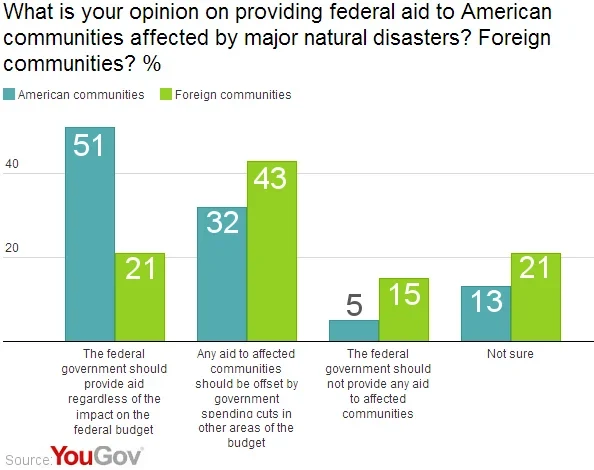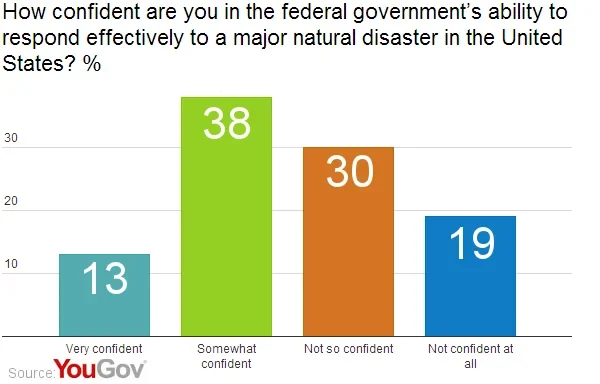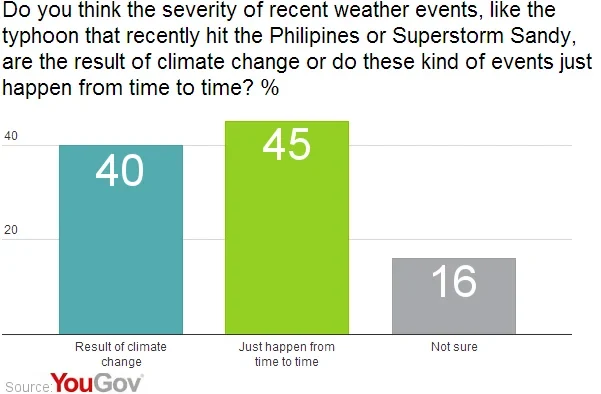Most Americans think that the government should provide help to disaster-afflicted US communities regardless of cost, but are more reluctant to give federal aid to victims of foreign disasters.
Two out of three Americans want the United States to help the Philippines recover from the recent typhoon that devastated the central part of that country. But the latest Economist/YouGov Poll suggests the public would rather not go into debt to pay for that assistance.
That is quite different from the opinion Americans express when asked if and how the government should finance aid to communities in the United States hard-hit by natural disasters like Superstorm Sandy and Hurricane Katrina. In those cases, a majority believes the government should provide aid, whatever the impact on the budget.

Only 5% believe the federal government should not help affected communities in the United States; 15% oppose spending government funds to help other countries recover.
Republicans, who tend to be more fiscally conservative than Democrats, are more likely in both cases to want any government spending to be offset by budget cuts elsewhere: 46% of Republicans say that should be the case for disasters in the United States, while 51% say that should be the case for foreign disasters. Two in three Democrats would provide assistance within the United States without regard for its budgetary impact; just a third of them, however, are willing to ignore budget implications for foreign disasters.
It’s not necessarily the case that the public expects the federal government would do a good job in handling disasters here at home: barely half the public is even somewhat confident that the government can respond effectively to a major natural disaster here.

One in four Democrats and more than a third of Republicans are not confident in the government’s effectiveness in responding to natural disasters. 38% of those in the Northeast, the area hit by Superstorm Sandy, and who may have recent personal experience with the government’s performance handling disasters, are not confident.
Whether the recent Typhoon Haiyan, Superstorm Sandy, and other snowstorms, floods and tornadoes are a harbinger of climate change or just events that happen from time to time is still a matter of debate. In previous Economist/YouGov Polls, only about a third attributed those natural disasters to climate change. In this poll, slightly more people do. However, a plurality continues to regard these weather events as part of a natural weather cycle.









